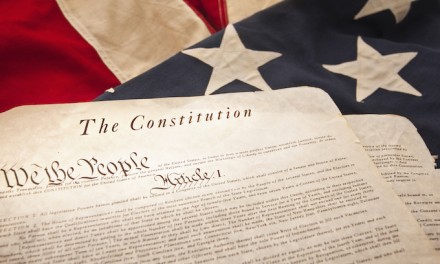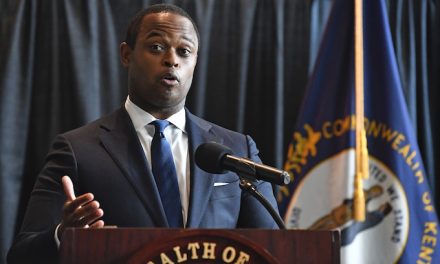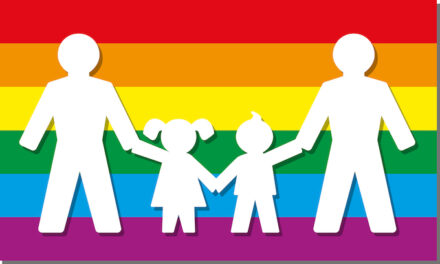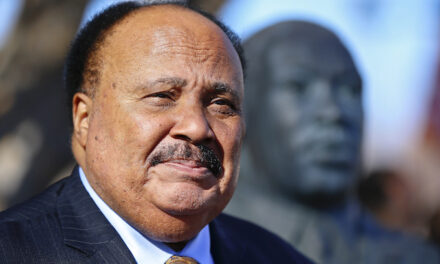“Armies of lawyers” on both sides of the impending presidential election are sharpening their pencils and getting ready for what could be a highly litigated election — particularly in the key swing state of Pennsylvania, experts say.
“It is likely that we will not have the results on Election Day, and both parties have now assembled two unprecedented armies of lawyers,” constitutional law scholar Jonathan Turley of George Washington University told the Herald. “This falls into the adage that when all you have is a hammer, every problem looks like a nail. The parties are going to use these legal teams to file contemporary challenges on the voting.”
That potentially means challenging ballots arriving after Election Day, or ones flagged because of markings or signatures on the ballot, experts say — and both President Trump and former Vice President Joe Biden have reportedly loaded up their legal teams in advance of the vote count.
The possibility of major election lawsuits evokes the specter of the 2000 presidential election, when rulings, reversals and then rereversals stopped and started a recount effort plagued by arguments in and out of court over “hanging chads” and “butterfly ballots.”
Florida, though, which has experience counting mail-in ballots and laws that allow processing of those votes in advance, is expected to have its results quickly, said Trevor Potter, a former chair of the Federal Election Commission. This year, it’s Pennsylvania, which swung to Trump in 2016, where a close race is most likely to end up tangled up in the courts.
“If you had to nominate a state for being the Florida of 2020, it would probably be Pennsylvania,” Potter, a former John McCain campaign counsel who now runs the Campaign Legal Center, told the Herald.
The Pennsylvania Supreme Court earlier this year ruled that mail-in ballots can be counted up to three days after Election Day, providing they are postmarked by Tuesday. Republicans, fighting that, took their case to the U.S. Supreme Court, which declined to hear the matter — though three justices suggested that they could be open to hearing further arguments about those late-arriving ballots after the election.
“There’s an open court case in Pennsylvania,” Potter said, though he said he doubted a majority of the nine Supreme Court justices would rule to toss those Keystone State ballots. “I do think if it’s a really close, election lawyers will be looking for any excuse to shift it their way. There’s certainly lawyers just champing at the bit to file lawsuits.”
Marian Schneider, a former Pennsylvania deputy secretary of state, noted that Pennsylvania in recent years has switched from electronic voting machines to paper ballots.
“The state is now better able to do recounts with paper ballots,” she said.
Schneider, who’s consulting with the American Civil Liberties Union for this election, said she expects lawyers on both sides to be ready to challenge ballots in a close race. She said the ACLU is ready to serve as counsel to anyone who’s fighting to make their ballot be counted.
The courts also have allowed North Carolina, another swing state, to go ahead with counting ballots that arrive three days late — but a similar initial ruling was struck down in Wisconsin.
Professor John Lappie of Plymouth State University in New Hampshire said that one of the main deadlines in a presidential election is when the Electoral College has to be seated to vote — that’s the wall the Florida recount eventually hit in 2000, bringing that process to an end. This year, that date is Dec. 14, so all counting must be done by then — but that’s the only outward limit.
“It’s certainly never been the case that legally they all need to be counted on election night,” Lappie said, noting that it’s been common in past elections for the vote count to stretch into the following days in some states.
Tammy Patrick of the Democracy Fund said it shouldn’t be lost in the kicking and screaming that among all this scrutiny and focus on election integrity — including more post-election audits than normal — this likely will “be one of the most accurate and sound elections I think we’ve ever had.”
Of voters, Patrick said, “This of all elections is one that they should have more confidence in, even than any other.”
___
(c)2020 the Boston Herald
Visit the Boston Herald at www.bostonherald.com
Distributed by Tribune Content Agency, LLC.
—-
This content is published through a licensing agreement with Acquire Media using its NewsEdge technology.



















Recent Comments